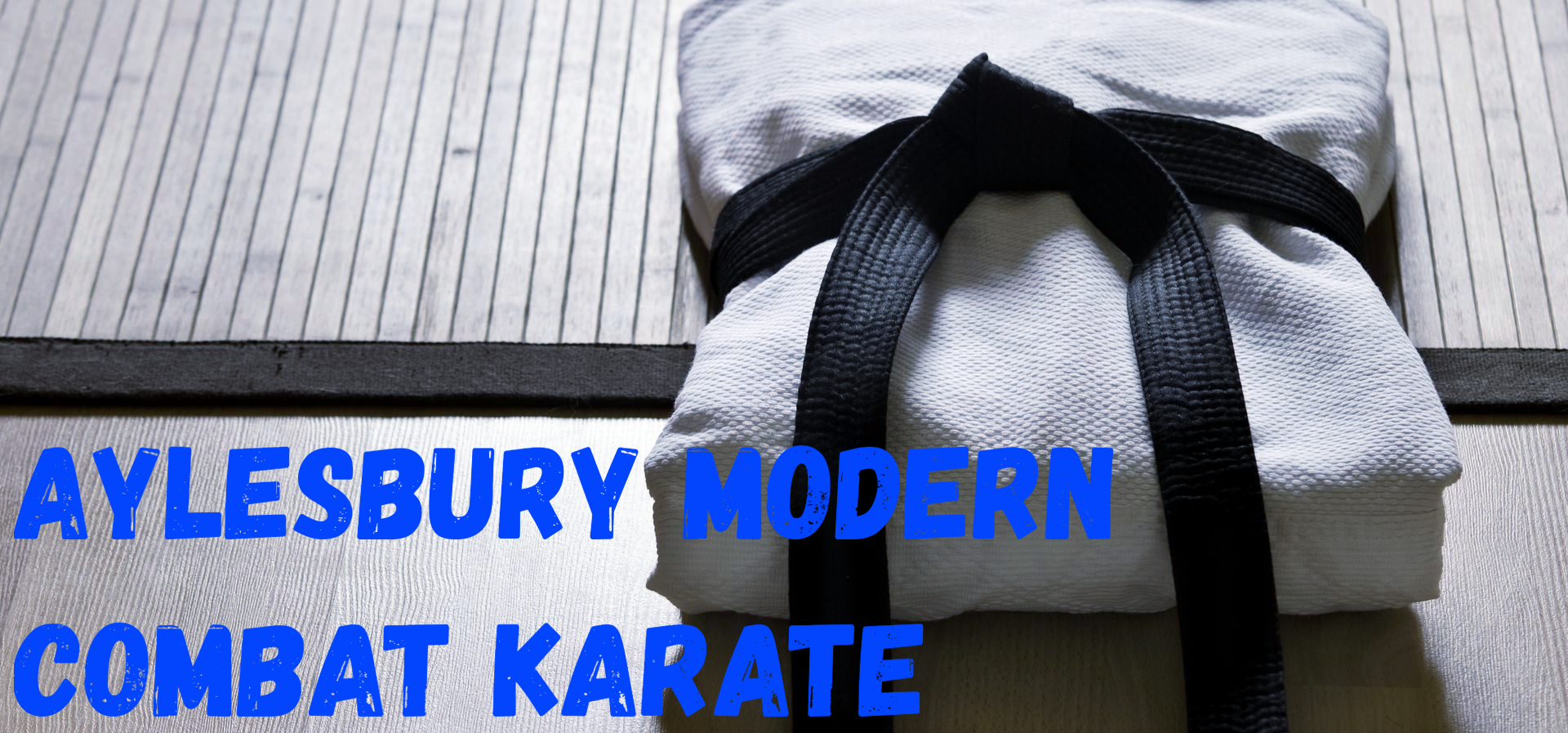Lessons Learned Through Competing in MMA.
13 October 2021
Before I get into this post, I'd like to mention that I don't believe this invalidates this post - I still have no intention of training full time in MMA, nor do I really believe it brings anything to my training that isn't already present.
In August of 2021, I took part in an amateur MMA fight, following a period of training at the excellent RDX MMA facility in Watford, England. During both the training and the match, as well as watching the other matches that night, I learned a number of things which I would like to share here.
1 - The most controversial lesson:
The ground isn't even that important in MMA.
Out of all the fights on fight night, very few went to the ground, and fewer still were decided by submission - most were won either on points, or by KO/TKO. While ground work is important, it is still not the be-all-end-all of fighting, the panacea of violence that some people propose it to be.
2 - The fighting lesson:
It doesn't take very long to become a competent fighter.
There was a range of experience levels at the commencement of the training, for people who already had a number of amateur fights under their belts, through people like me who have competed in other sports, to people with little to no experience.
One of my frequent sparring partners started training having never fought or trained before, and ended up winning his fight by TKO in the 2nd round against a more experienced opponent. This is one of the big advantages of MMA, and something I try and aim for in training - teach the high percentage low skill moves first, and give people the ability to fight as soon as possible.
Our full syllabus to black belt takes around 7 years, but I consider most student competent to defend themselves physically after about 3 to 6 months - because we focus on hitting hard, hitting fast, and then not being there afterwards.
3 - The fitness lesson:
Conditioning must be sport specific.
Coming from a background of fitness training and strength and conditioning, this was not a lesson I learned, so much as one which was reinforced. My out of gym training largely consisted of rounds of bag work to match the rounds in competition, with level changes thrown in, random interval training, grappling rounds of various intensities, and so on, with only a very light addition of general preparation exercises like skipping. The first round I struggled slightly due to adrenaline (which is difficult to train for), but rounds 2 and 3 I was flying and felt great.
Others did lots of road work, lots of general preparatory exercises, and not so much live sparring (particularly in regard to grappling). This showed in the lead up to the fight during training, as well as during many of the fights themselves - people had conditioned and prepared themselves for the wrong thing. They were in decent general shape, but not fit for the task of fighting.
Generally in our club our conditioning follows this principle, we do a lot of shorter duration, higher intensity efforts, usually in the form of bag work, sparring, or drill combinations.
4 - The mindset lesson:
If you want it, you'll get it.
I drove 50 minutes each way to training - twice a week - for what turned out to eventually be about 3 and a half months due to lockdowns in the UK interrupting the training. I trained in between the blocks of sessions when the gyms closed, on my own, in my flat.
There were people who turned up for one session at the start, and we didn't see them again.
If you want something, it takes hard work, sacrifice, and dedication. Again, this isn't a lesson I learned, but it was brought into sharp focus by the huge drop in numbers from the start of training until fight night.
5 - The second mindset lesson:
Nothing prepares you for fighting, except fighting.
Before this fight, it had been about 2 years since I'd stepped onto the mats in kickboxing, and before that it was about 5 years since I'd competed in karate.
Each time I step back onto the mats to compete after a break, I'm reminded of how much our mental state comes into play. No matter how many practice rounds you do, how fit you are, how well practiced your skills and well planned your game plan, when that first shot lands you need to be prepared mentally for it.
The answer here is of course to compete, frequently, so you're used to this - this is why even for practical, self-defence focussed groups sport competition can be so vitally important.
These were the main 5 lessons I learned from competing in an amateur MMA fight. Would I do it again? Probably, but it's not my focus right now. I wanted to do it as a learning experience, and to test myself - I've accomplished it as a goal and I'll be looking forward to new goals come 2022.
Until then,
Stand firm. Be strong. Let all that you do be done with love.
Rob.

panacea /ˌpanəˈsiːə/ noun a solution or remedy for all difficulties or diseases. The above post was shared in a martial arts group I am a member of on Facebook , the statement by the poster here for those who can't see it is "For everyone saying that Brazilian juijitsu is not useful, sure would've come in handy here." My response to these kinds of posts is normally to simply move past them, however I thought this was a good example to discuss an issue which many martial artists tend to ignore. That issue is that NOTHING is guaranteed to be useful. The second issue is that sport or martial arts training is not guaranteed to carry over into non-consensual violence. Now, the sole reason the poster has put this up with this comment is because the fight goes to the floor unusually quickly, and therefore BJJ must be the best thing the officer could have used in this situation, no? Well lets discuss it in terms of the first issue initially. Yes, some level of ground fighting may have assisted the officer in this confrontation, but I have a number of objections to the statement that BJJ alone would have solved this confrontation. BJJ is a Sport . I will cover this more in a minute. We have no idea what the police officer's current level of grappling accomplishment is. He could be a BJJ professor, taken by surprise and performing at a sub-par level due to a number of factors (e.g. the adrenaline dump). With incomplete evidence, we can't draw a valid conclusion. We have no idea what the criminal's level of grappling accomplishment is. Many people suggest a level of blue belt as a minimum for law enforcement. What if the criminal's a brown belt? In the UFC - essentially the closest we can get to actual real-world confrontation at high intensity 11 of the top 16 male fighters (as of summer 2020) were primarily wrestlers. "But the others were probably juijiteiros?!" I hear you cry. Nope. Boxers or Nak Muay. So even if we concede that a greater level of grappling skill would have helped here, we can't outright state that BJJ would be the best path to take. What I am of course willing to concede is that - assuming no grappling knowledge on behalf of the officer - BJJ may have been useful here. While I don't fully support the "carryover myth," I do believe something is generally better than nothing. So let's revisit point 1 there, and my second issue with the statement made about BJJ. BJJ is primarily a sport . It is entirely focussed in the modern format on beating other juijiteiros to a set rules format. I may be wrong here, and I am open to correction, but I don't believe most BJJ schools practice in full rig, with body armour and tac-belts or webbing, with their legs restricted and weighed down with heavy boots. I don't think many of them run weapon retention drills as a regular feature of their training - if at all. Generally speaking, most side-arms have some built-in weapon retention features in the holster, however given the variety between US police forces/sheriff's departments etc it's not unlikely that someone tries to have a firearm taken out of a holster without these safety features, and then has to rely on their own ability to retain it - I'd be interested to see how many BJJ clubs train without being able to use your hands? And when was the last time you saw a BJJ gym which was 10'x10', with a hard tiled floor? The officer in this confrontation ends up on the floor because he slips over. No takedown defence is going to help with that, it's an accidental function of the situation that the officer finds himself in. None of those conditions are suitable for training the sport of BJJ - the reason most people turn up to BJJ gyms in the first place. And to revisit the fact that BJJ is a sport with rules - the safest course of action on the ground in a physical confrontation is to get back up. Unlike in American Folkstyle Wrestling , there are no points awarded for a stand-up or escape in BJJ . In fact, standing to escape a position on the ground is classed by the IBJJF as a "Serious Foul" unless the escapee doesn't immediately return to the ground with their opponent [IBJJF Rules, Section 6.2.2 E]. As a sport, BJJ cannot seriously be pursued as the primary means of physical intervention when self-protection is the goal, whether personal or professional. Of course, the point of this post is not simply to bash BJJ. Many people greatly enjoy it as a training method, and as a sport to both practice and watch. However no individual martial art or combat sport is suitable for self protection or professional use of force. What the officer in the above image (and video it was taken from) needs is not to simply be better at BJJ. He needs a comprehensive use of force training program, which includes ground work (including the most important skill - escape), as well as the unique aspects which only his role will require - weapon retention, restraint procedures, prisoner handling, and so on. To claim that BJJ - or any other individual sport or art - is the panacea that will solve every use of force issue that could ever arise is either stupid or disingenuous, depending on how charitable I am feeling. We need to stop obsessing over what we doing having to be the best for every possible situation, and acknowledge what it is and isn't good for, and be pragmatic about our training if we're in a situation where our life may depend on it, rather than just going with the zeitgeist. I have no illusions about what our training covers, what it is useful for and what it isn't, but then again I've been there - maybe some people haven't. Stand firm. Be strong. Let all that you do be done with love. Rob.

Print that out, stick it in the back of your training journal, and refer back to it if you need to which you won’t because it’s so bloody easy to remember! The psychology behind human violence - both from the perspective of an aggressor and as a victim - is complex, and an in depth study of it takes years. I know this, I used to work with forensic psychologists, who spend several years in education and practice figuring out why people carry out violence against other people, what the triggers are, how the aggressor’s own trauma influenced their eventual criminality. And sure, if you want, you can have someone with that level of knowledge come in and discuss that. And discuss the psychology of victimhood, and how predatory criminals choose their victims based on how resilient they appear. Or you can take Coopers code away with you, and say to your students - “be in condition yellow - don’t walk around looking like an easy target!” Immediately applicable, and then possible to build on throughout your training. I recently read a takedown of Cooper’s colour code where the writer scoffed at Condition White because walking down the street he knew there was zero chance of him being attacked, and didn’t need to be in any state of alert because common sense told him he’d be fine. That’s all grand until someone runs up behind him and belts him in the head for no reason. “But Rob! That’s just scare mongering! Things like that don’t happen, especially on the streets of jolly old blighty.” Oh you sweet summer child. I’ll just leave this here for you (along with a violence content warning):

“Like textbooks to a student, or tactical exercises to a soldier, kata are the most important element of Karate.” -Funakoshi Gichin Being from the UK, I have never played (nor watched) a single game of American Football in my life. How this situation has arisen I will never be able to decode. This fact aside, however, I am not ignorant to the existence of “The Playbook.” This is a book, containing among other things an outline of various plays, used by the team in question. How they came up with the name is also a mystery we will never solve. To explain, for anyone who is unaware of the existence of or purpose of a play book, it contains a large amount of administrative minutia such as who is responsible for what jobs on game day, how huddles should be run, responsibilities of the team captain on and off the pitch - interesting stuff. But that’s just the sizzle. The sausage comes in two sections in the playbook - the team’s ethos and goals, and the plays themselves (I promise, we’ll get to karate soon). Now for obvious reasons the section on the team’s ethos and goals varies team to team, however generally speaking they will more or less resemble something like this:
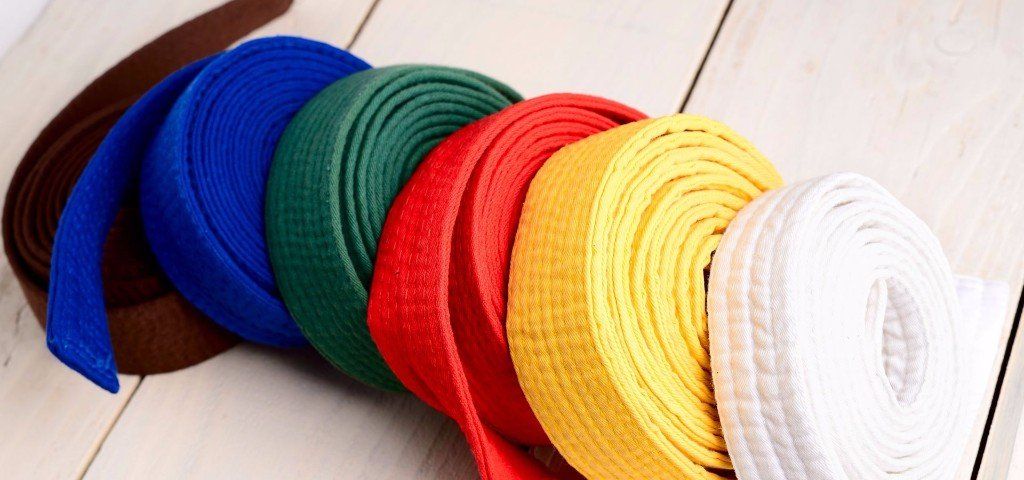
This is in part adapted from our syllabus to explain our own grading system, along with generally available information to provide contrast with the more traditional method. The belt system in the martial arts was originally developed by Jigoro Kano, founder of Judo, and initially consisted of 2 belts - white for students and black for instructors. A third belt was later added for high level students (some version of this is often seen in aikido, where ikkyu (1st kyu) students will have brown belts, with other kyu grades having white belts and instructors black), and later a purple belt as a chilren's rank. This is the system which eventually became - with the addition of a blue belt - the BJJ belt system, as well as the 7 belts of Judo (white for novice and then 6 kyu grades). It was further expanded by Funakoshi Gichin and his contemporaries to include the 10 kyu grades currently used in the majority of karate schools nowadays, with each kyu grade using a different coloured belt. This is typically the most recognisable system, and whilst variations in the exact colour order do exist, usually there is some variation on the theme of red/orange/yellow representing the lower grades, green/blue/purple representing mid grades, and brown belts - often with additional stripes added - representing higher grades. At Aylesbury Modern Combat Karate we use a much more streamlined system - more similar to that found in BJJ, or to that which would have been used by early contemporaries of Kano to delineate student skill. We have 4 belts in the system (not including white), spread across 8 kyu grades plus dan grades, with each belt corresponding approximately to an area of combative skill. The first belt is yellow - achieving this indicates the student has developed an acceptable level of skill in striking, limb clearance, and more distance techniques. This is followed by green, at which point the student will have developed a baseline understanding of grappling, including simple takedowns, hip throws, and so on. Next up is brown, and at this point the student will have completed the course of the Heian/Pinan kata and should be able to display a respectable level of proficiency both on their feet and whilst on the ground. Each belt has an intermediate grade where a bar of the next ranks colour is added to the belt to demonstrate certain way points in training being acheived. The next belt is the most contentious - the coveted black belt. Much more a symbol in the west than in the east (where it's possible to gain a black belt in a year - obviously a sign of a McDojo until one realises the student being awarded the belt has likely trained 2 hours a day, 6 days a week for that year), the black belt is often held up as "The beginning of your real training!" This is, of course, nonsense. Our syllabus requires at a minimum 5 years of training before earning a black belt. If, following 5 years of training with me you are still an absolute beginner, please take all of your money back - I've failed you. To paraphase our syllabus: " A black belt karateka should be an expert striker, able to strike vital targets both standing, and on the ground." I want our black belts to be able to stand up with anyone who's been training for a similar amount of time and be able to if not win, then at least make a decent showing of themselves, and treating them as beginners makes this impossible for them. This is also where the relationship becomes far more reciprocal. To again quote our syllabus, "Black belts should be competent enough to define their own training goals, and work with the senior instructor to work towards these." Black belts should work cooperatively together to better each other and push each other forward, and not stick too rigidly to an "I got my belt before you so I'm in charge" mentality. To learn more about our syllabus, our grading structure and our training, contact us for a free trial session (or view a sample of our syllabus here ). It's a great honour to have had our syllabus reviewed by Iain Abernethy, 7th Dan, of the British Combat Karate Association, and to have had it pass first time. A lot of time, effort, and love has gone into crafting something which provides a well rounded, realistic, and informative teaching progression, and it shows in the final product. We'd love to share our training with you, so please do come along to a session or two. Stand firm. Be strong. Let all that you do be done with love. Rob.
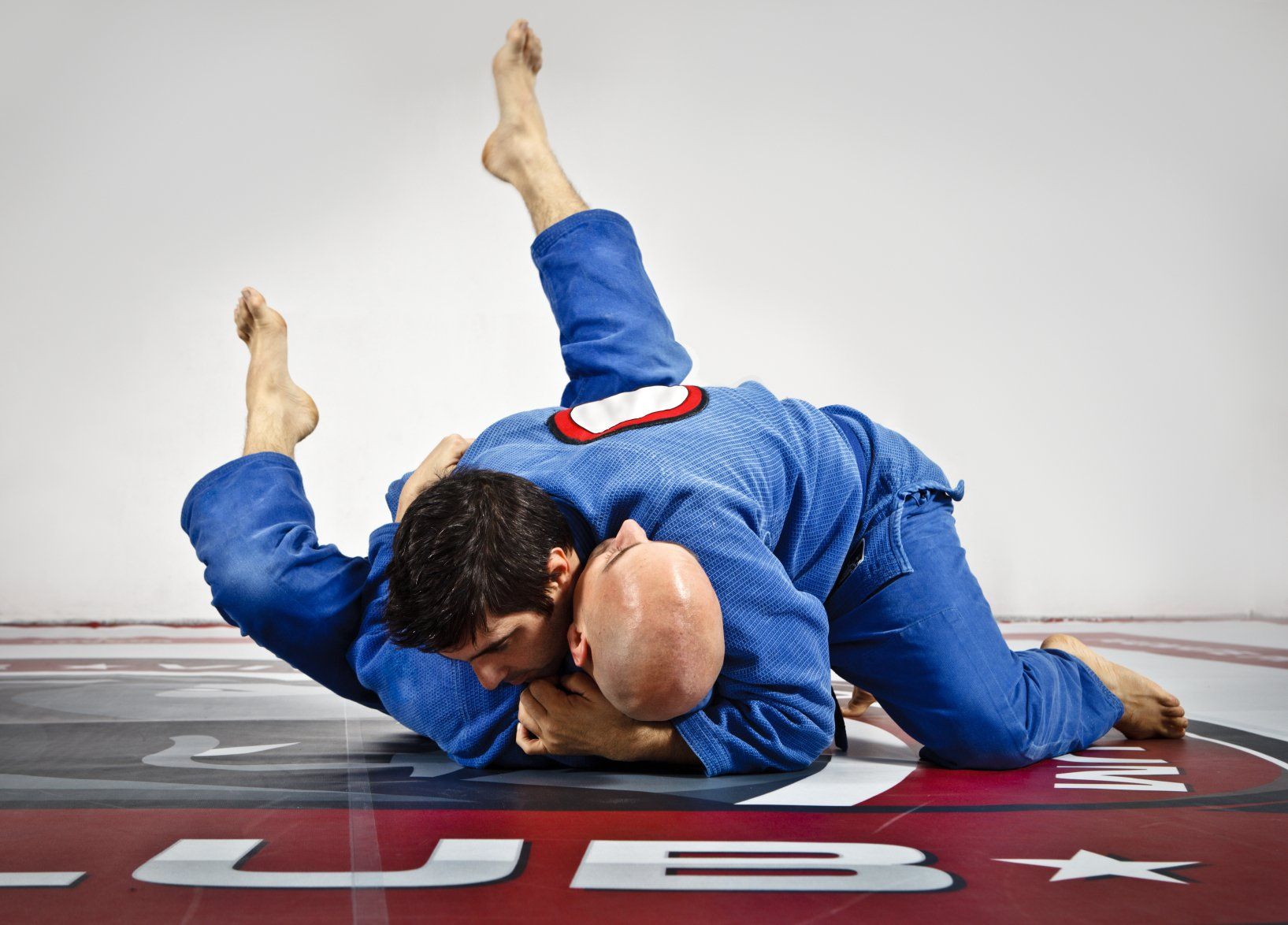
Rob, you're a large, bearded, shaven headed individual with a background in policing and the armed forces - why don't you do MMA? Why karate? Whilst not having been asked this exact question before, I have often received a significant degree of surprise from people when I tell them traditional karate is my jam. Plum jam is also my jam. The answer to why not MMA is, of course, that's a stupid question - I do do MMA, if by MMA you mean a system combining striking, stand up grappling, and ground work, developed by the influences of a number of different arts over time (although MMA fighters nowadays are just Muay Thai fighters who know BJJ, or vice versa - come at me). Just because karate has been sanitised by the Japanese for their own needs (physical education, prepartion of youth for warfare, and national pride in the face of overwhelming western cultural influence), and that this sanitised version is what is taught in most dojos doesn't mean that the original, highly effective, holistic method of combat isn't still there under the surface. It's highly obvious to anyone who can read that karate is an all-in fighting system, take a look at the below quotes from between around 80-130 years ago, and then let me know if your mind is changed: The karate that has been introduced to Tokyo is actually just a part of the whole. The fact that those who have learnt karate there feel it only consists of kicks & punches, and that throws & locks are only to be found in judo or jujutsu, can only be put down to a lack of understanding - Kenwa Mabuni In karate, hitting, thrusting, and kicking are not the only methods, throwing techniques and pressure against joints are included - Gichin Funakoshi I grabbed his hand, took up the position of “kake-kumite” and said “What will you do?” He was hesitant, and I thought to punch him would be too much, so I threw him with “kote-gaeshi” at which he fell to the ground with a thud. He got up, his face red, and said “once more” so we took up the position of kake-kumite again. And again I threw him with kote-gaeshi. He did not relent and asked for another bout, so he was thrown the same way for a third time - Choki Motobu (regarding confronting Funakoshi at his dojo) Funakoshi also stated: The karate that high school students practice today is not the same karate that was practiced even as recently as ten years ago [1946], and it is a long way indeed from the karate I learned when I was a child in Okinawa. An illustration of the rate of change undergone by karate as it was popularised. In our club we still practice the throws, locks, ground work, and control methods of traditional karate, with our foundation being the 9 original throws of Funakoshi Gichin, and additional techniques being used to reinforce these in a combative context. If you'd like to learn more about the all-in fighting methods of traditional karate, including the throwing methods and associated controls and restraints, contact us for your free trial session now ! Stand firm. Be strong. Let all that you do be done with love. Rob
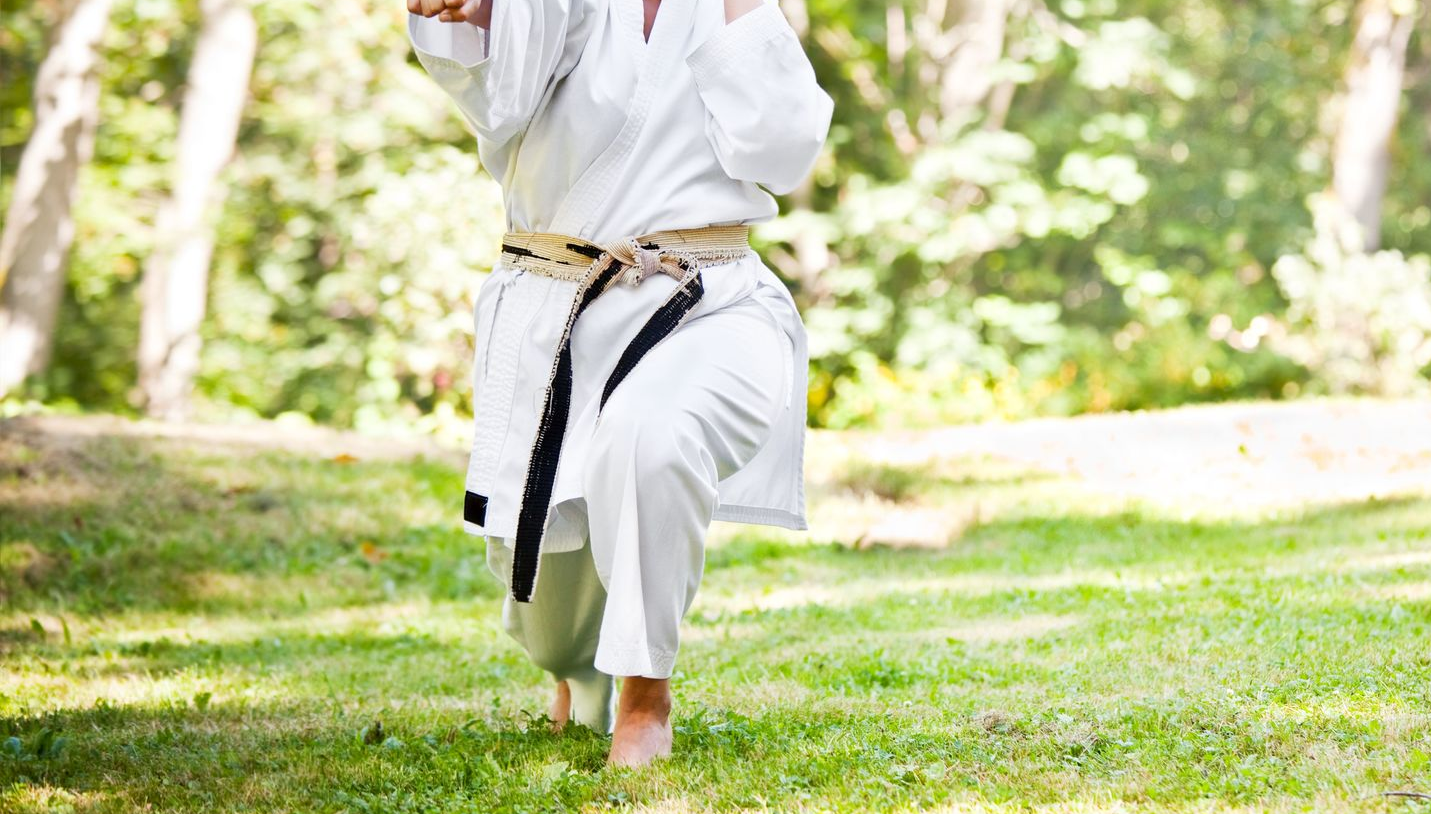
Iain Abernethy, 7th Dan with the British Combat Karate Association, runs a podcast on his website . Alongside others, he typically runs an end-of-year Q&A podcast, in which he answers questions from his app users, forum members, and other listeners. On Dec 15th of 2019, I submitted a query regarding the correct execution of Hangetsu-dachi stance, which he was kind enough to answer. His answer can be found around the 24 minute mark of the second installment of 2019's Q&A, and I'll not rob you of the joy of listening to it by writing his answer here, however I will discuss my own thoughts regarding stances. Stances in karate are formalised versions of natural postures taken by fighters in all arenas, and we should strive to bring them back to functionality by analysis of the way modern combat sport athletes compete. Those, in a nutshell, are my thoughts on stances in karate. End of blog post? . . . Okay, so we won't end it there - I'll give an example of what I mean. When I emailed Mr. Abernethy in December of last year, I provided the image at the bottom of the page as an illustration of my point, as I often don't convey my meaning well in words (darn you! kineasthetic learning style!). My point was that hangetsudachi (a stance specific to the kata Hangetsu, but related in function to sanchindachi - a foundation stance of goju-ryu karate) was a fluid and mobile stance, not a rigid one as is so often put forward. The purpose of turning the feet in is to allow greater hip movement without over-rotating and risking injury. The knees track over the toes to keep them safe (they don't cave into valgus position to "block groin kicks"), and this then allows greater extension through the ankle and knee to generate force. We see almost identical foot positions in the boxer's longer orthodox stance, as well as in the stance of MMA fighters (notably Conor McGregor shown in the image). All of this indicates to me that, while the slow pressured breathing of Sanchin Kata was added to Hangetsu, this doesn't detract from the original purpose of the stance itself, and we therefore shouldn't be treating the stance as if it's only function is to keep us rooted in place. We should re-evaluate all our stances in this manner, looking at their use in modern combat sports - we may find our eyes opened to the functions of our kata more. Gichin Funakoshi said it nearly 100 years ago: " Beginners use stances, advanced students use natural postures ." Let's get a little bit more natural with our postures, shall we?

This is copy-pasted from our syllabus document, and gives a brief overview of the legal position of the use of force for self defence in the UK. It is not to be considered legal advice, nor is it all-encompassing in scope. It is provided for informative purposes only. There are members of the practical karate movement such as Leigh Simms who are qualified to give legal advice (and who delivers an excellent seminar on the subject) - I am not one of them. When in doubt consult with a qualified lawyer. None of this information is valid outside of the UK. Legal Standpoint: During this syllabus, the student will learn how to apply violent force to other persons both for competitive, but also for self-defence purposes. It is important that the student is aware of the legal provisions for use of force. Please note, this is provided for informative purposes and signposting only, and is not legal advice. The main pieces of legislation covering use of force in self defence are : - UK Common Law (R v Griffiths 1988): If you have an honestly held belief that you or another, are in imminent danger, then you may use such force as is reasonable and necessary to avert that danger. - Article 2 ECHR: [Deprivation of life shall not be regarded as inflicted in contravention of this article, when it results from the use of force, which is no more than absolutely necessary: - a) In defence of any person from unlawful violence.] - S76 Criminal Justice and Immigration Act 2008: Reaffirms that people should be judged on circumstances as they perceive them. According to the national police college , there are three questions that police officers should ask to determine whether use of force was lawful or not: - Would the use of force have a lawful objective (e.g. the prevention of injury to others or damage to property, or the effecting of a lawful arrest) and, if so, how immediate and grave is the threat posed? - Are there any means, short of the use of force, capable of attaining the lawful objective identified? - Having regard to the nature and gravity of the threat, and the potential for adverse consequences to arise from the use of force (including the risk of escalation and the exposure of others to harm), what is the minimum level of force required to attain the objective identified, and would the use of that level of force be proportionate or excessive? This is the broad framework in which we work with regards to self-defence in our club, and informs our actions when we look at the validity of any technique in a self-defence context, as opposed to a sporting one, or exploring historical context in the martial arts . If you'd like to learn more about practical self defence, including the soft skills needed to prevent use of force becoming a requirement rather than an option, contact us to arrange a free trial session . Stand firm. Be strong. Let all that you do be done with love. Rob
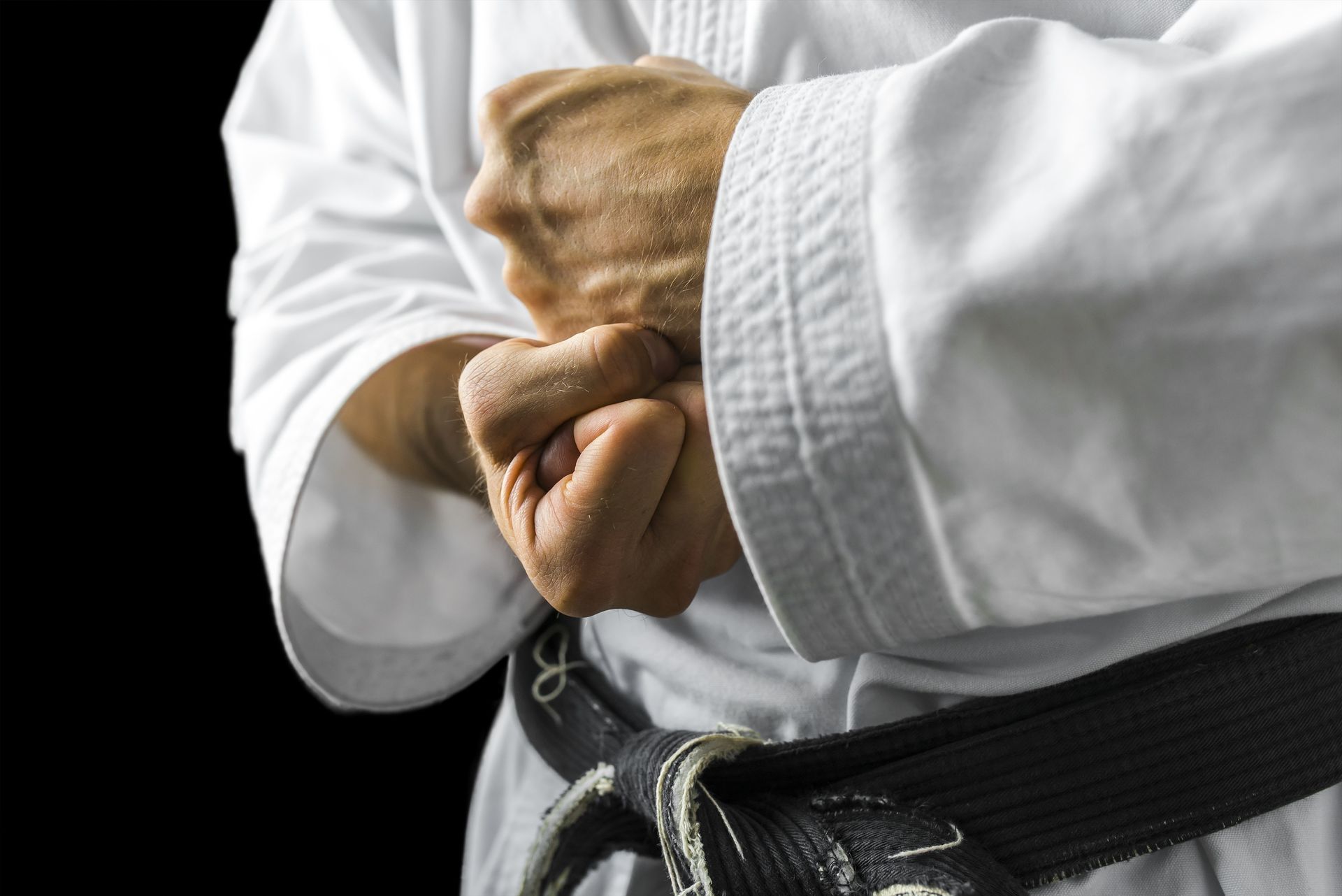
This is an essay which I had to write for my 1st Dan grading. This was written in 2013, at the age of 19, before I failed my 1st attempt at my black belt. The message in it still holds true today, as it did over 7 years ago. The martial arts have expanded my life in so many ways, leading indirectly to my involvement in the Police, the Navy, my current job as a fitness professional, and so much else besides. To paraphrase BCKA Instructor Iain Abernethy, 7th Dan - "The martial arts should be life preserving and life enhancing." Through developing a deeper appreciation for physical culture and fitness, karate has helped in life preservation for me, and in so many other ways, it has been life enhancing. I have been doing karate since I was about 6 years old, almost three quarters of my life have been affected in some way by it's practice. It has been the sole constant in my life since before I can remember, and the only thing which, when I want to do nothing at all, can still inspire me to do something. It is the first thing I look for when I join or go somewhere new, or think about going somewhere; “Can I do karate there? How much training will I miss?” It's hard to explain, really, how karate has affected my life, because at this point it's so much a part of my life that there's almost no differentiating between them. Everything I do, such as weight training, is done to better myself as a person and as a karateka in equal parts. I've done various other sports in my life, and even different martial arts, but none has ever challenged me, or drawn me in as much as karate has, and continues to do. I have trained in different dojos, in different styles taught in different ways. In all of these I have helped teach younger students, or lower grades, and I love the ability to help people learn something which so inspires me that karate gives me. Some of the best people I have ever met are friends I've met through karate, who have opened up entire new areas of my life. It's thanks to karate that I started weight training, and that I gained the confidence to join the Navy, and the Police, and the confidence in my own abilities to allow me to perform in both of those roles without fear or worry about what happens. I still remember my first karate instructor, who taught me Goju-Ryu for almost a decade. I've met him a few times around town, and we exchange words, but it's amazing to me that we still remember each other after 5 years and it's amazing that karate, like no other thing, can have an impact on people lasting such a long time. I've read his one of these, which is much better than this, if I'm honest, and even though he was inspired for different reasons to me, and I've been inspired in different ways to the everyone else who is and has graded to black belt, but the most important thing is that we've all been inspired. Inspired to turn up for 6 hours a week, or more for gradings and courses. Inspired to train for months, years at a time to reach a goal, whether it's the ultimate goal we're all supposed to have of gaining our black belt, or our own personal goal; to master that jump; to make it past the first round in competition; to be better. And I'm lucky, because I've been trained by some of the best karateka I've ever met, ever seen. In my life I may never be better than them. I may surpass them immensely. But that's the thing about karate, there's no luck to it. If I want to be better than - or even as good as - those who have taught me, I can never stop training, and I never will, because to do so would be to disrespect their skills, and the hours of teaching they've spent on me. Since failing my grading in October last year, I have redoubled my efforts in training, primarily in regards to kata training, the area in which I was found wanting. I have practiced not only at the club, but in my own time when other engagements, or illness, have got in the way of my attendance at training sessions. I have also made a special effort to attend the clubmark courses as frequently as possible in order to be as up to date on the revisions to the kata so that I can perform them as they are desired. I have also been assisting with the junior classes held by Sensei Rosemary, and I feel this has given me a greater understanding of the Heian kata, as I am having to develop a deeper knowledge of them in order to help those learning for the first time. I have developed a great deal in the 8 years since this was written. I have changed the focus of my karate, I have attended seminars with some of the top karateka in the UK, I have taken up kickboxing, judo, and tried my hand at Jujutsu and catch wrestling. I have an amateur MMA bout scheduled (hopefully) towards the end of 2020. And I've changed a lot personally, too. I'm more confident, more sure of who I am as a person. I'm less concerned about the mundane than I was as a teenager and in my early 20's and more focussed on life, friends, family. And this is all because of karate. Stand firm. Be strong. Let all that you do be done in love. Rob.
